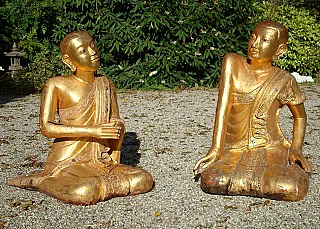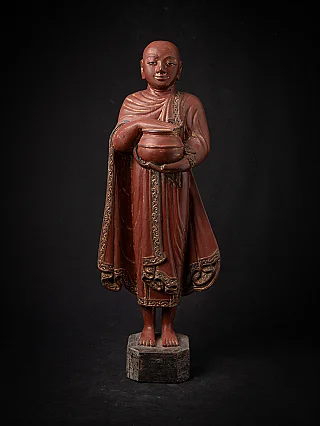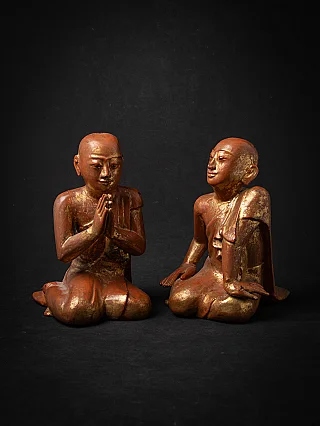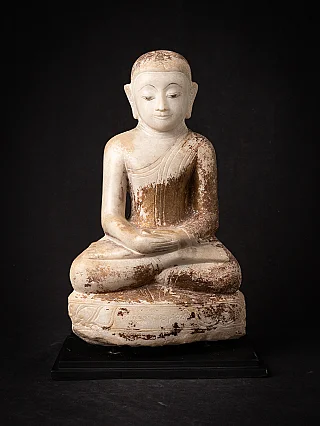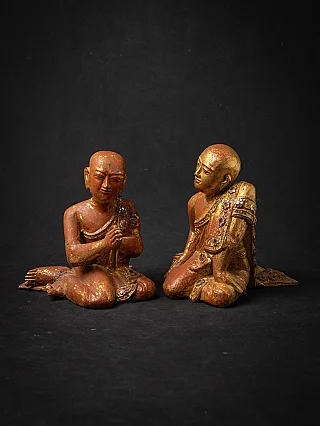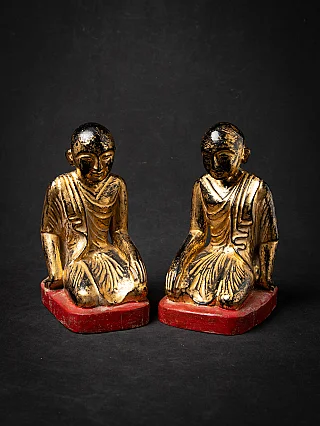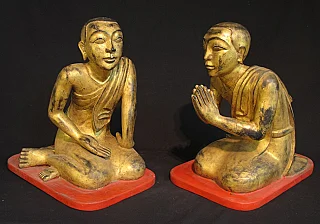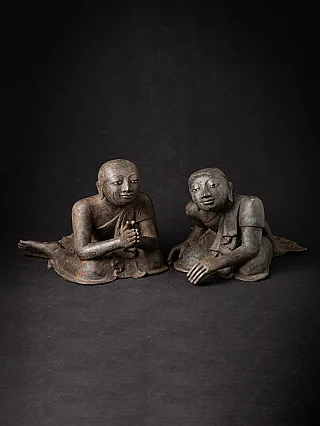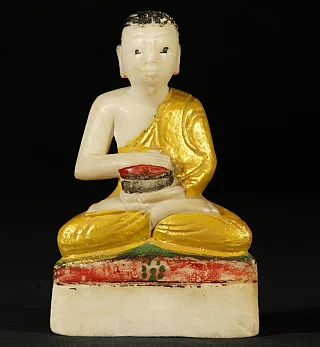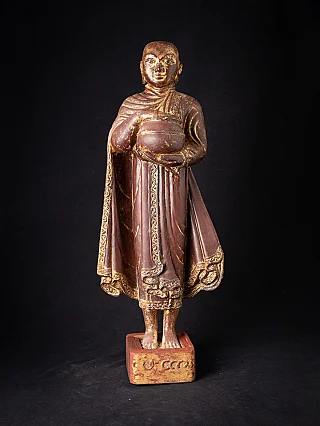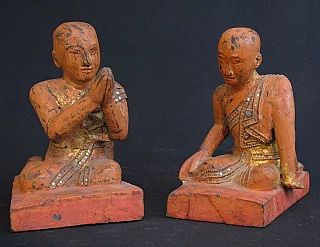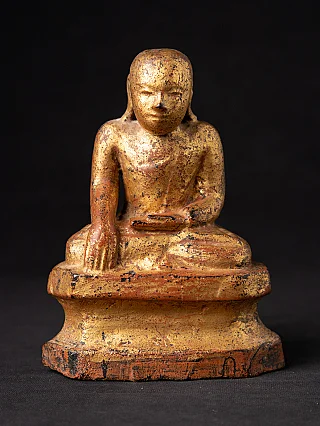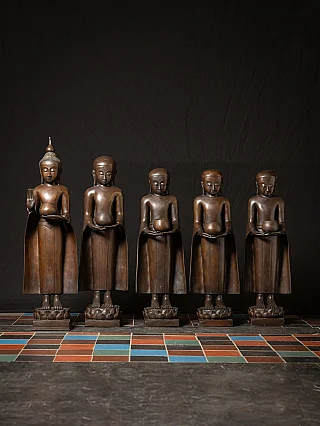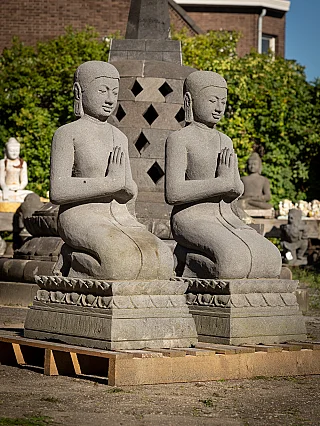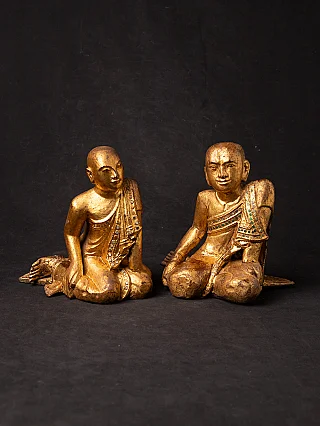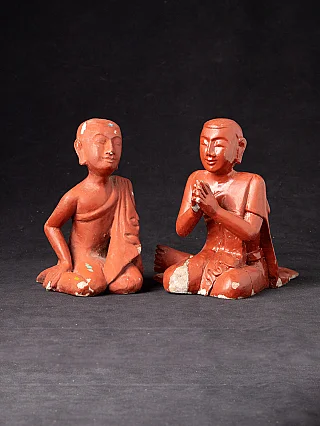Bodhisattva Ksitigarbha - Great Vow to Help all beings
Author : Peter Vredeveld
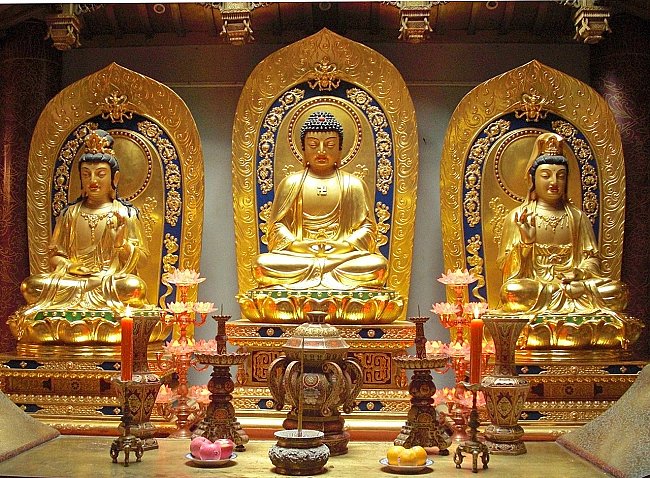
Bodhisattva Ksitigarbha is one of the four principal boddhisattva in Mahayana Buddhism. Bodhisattva Ksitigarbha took a great vow to guide all living beings from the hell and denied to achieve Buddhahood until all hells are emptied.
Bodhisattva Kshitigarbha is a popular bodhisattva highly respected and worshipped by Chinese and Japanese Buddhists. Bodhisattva is also known as Ti Tsang P'usa and is depicted as a Buddhist monk. The term "Ksitigarbha" refers to meaning "Earth Treasury," "Earth Store," "Earth Matrix," or "Earth Womb." Bodhisattva Ksitigarbha was foremost a Great Vow to help and deliver all beings. Bodhisattva Ksitigarbha was depicted as a Buddhist monk with a shaved head, wearing simple robes, and wielding a staff.
"If I do not go to Hell to help the suffering beings there, who else will go? ... if the Hells are not empty, I will not become a Buddha. Only when all living beings have been saved will I attain Bodhi."- Ksitigarbha Greatest Compassionate Vow
Ksitigarbha Bodhisattva was mainly known for his vow to take the responsibility to guide all living beings that existed in the six realms between the departure of Lord Buddha and the rise of future Buddha, Maitreya. According to the history of Mahayana Buddhist Tradition, Bodhisattva Ksitigarbha took a vow not to achieve Buddhahood until all beings are free from Hell and all hells are emptied.
Bodhisattva Ksitigarbha is one of the four principal bodhisattvas greatly respected and worshipped in Mahayana Buddhism. The other three bodhisattvas are Samantabhadra, Avalokitesvara, and Manjushri. The full name of Ksitigarbha is Dayuan Dizang Pusa or "Bodhisattva King Earth-Matrix of the Great Vow."
Ksitigarbha is often depicted as a Buddhist monk who took a vow not to achieve Buddhahood and guide all living beings until all hells are emptied. But in China, Ksitigarbha is also depicted as a Brahmin maiden.
Ksitigarbha as a Brahmin Maiden

The story of Ksitigarbha was mentioned in the Ksitigarbha Bodhisattva Purvapanidhana sutra, one of the most popular Mahayana Sutras. According to Ksitigarbha Sutra, Ksitigarbha used to be the maiden of a Brahmin. She was afflicted because of her mother's death. Since she had a false statement about the three jewels, she got worried that her mother would experience great torture in Hell. So, she sold everything on her property to offer offerings to the Buddha of her time. The Buddha at that time was known as Buddha of the Flower of Meditation and Enlightenment. She asked for Buddha's help to spare her mother from all the pain in Hell. Later, after seeing Ksitigarbha praying fervently, Buddha told her to go home and recite his name if she wanted to see where her mother was. After doing the exact thing that Buddha instructed her, her consciousness went to the realm of Hell, and she was informed by the guardian that her mother went to heaven after her fervent prayers and offerings. After knowing that her mother went to heaven, she was relieved, but she was also sad seeing the suffering in Hell; she took a vow to help beings to relieve them from the misery of Hell.
Ksitigarbha as a Buddhist Monk
According to Mahayana Buddhist tradition, there existed a legend on how Ksitigarbha manifested himself in China and how Mount Jiuhua became Ksitigarbha's Bodhimanda, one of the four sacred mountains in China. According to records, Ksitigarbha was a former prince of Silla known as Kim Gyo-gak, and he went to Mount Jiuhua to cultivate his dharma.
Some rumors said that a snake bit Ksitigarbha on Mount Jiuhua. Unable to move, he resides in Mount Jiuhua. He was cured by the medicine given by a woman, a passerby. Then, he started meditating in a small hut on Mount Jiuhua. When a scholar, his friend, and his family visited the mountain, they noticed Ksitigarbha meditating. But looking at Ksitigarbha's dire condition, they decided to build a temple as an offering to him. When they asked him how much he needed, he said he needed a piece of land covered with his robe. The scholar and his friend were surprised when he threw his robe, which spread across the mountain. Elder Wen-Ke, the owner of Mount Jiuhua, provided the entire mountain to Ksitigarbha and named the hill to Ksitigarbha. Jijang died at the age of 99 in Mount Jiuhua.
Share this page

















